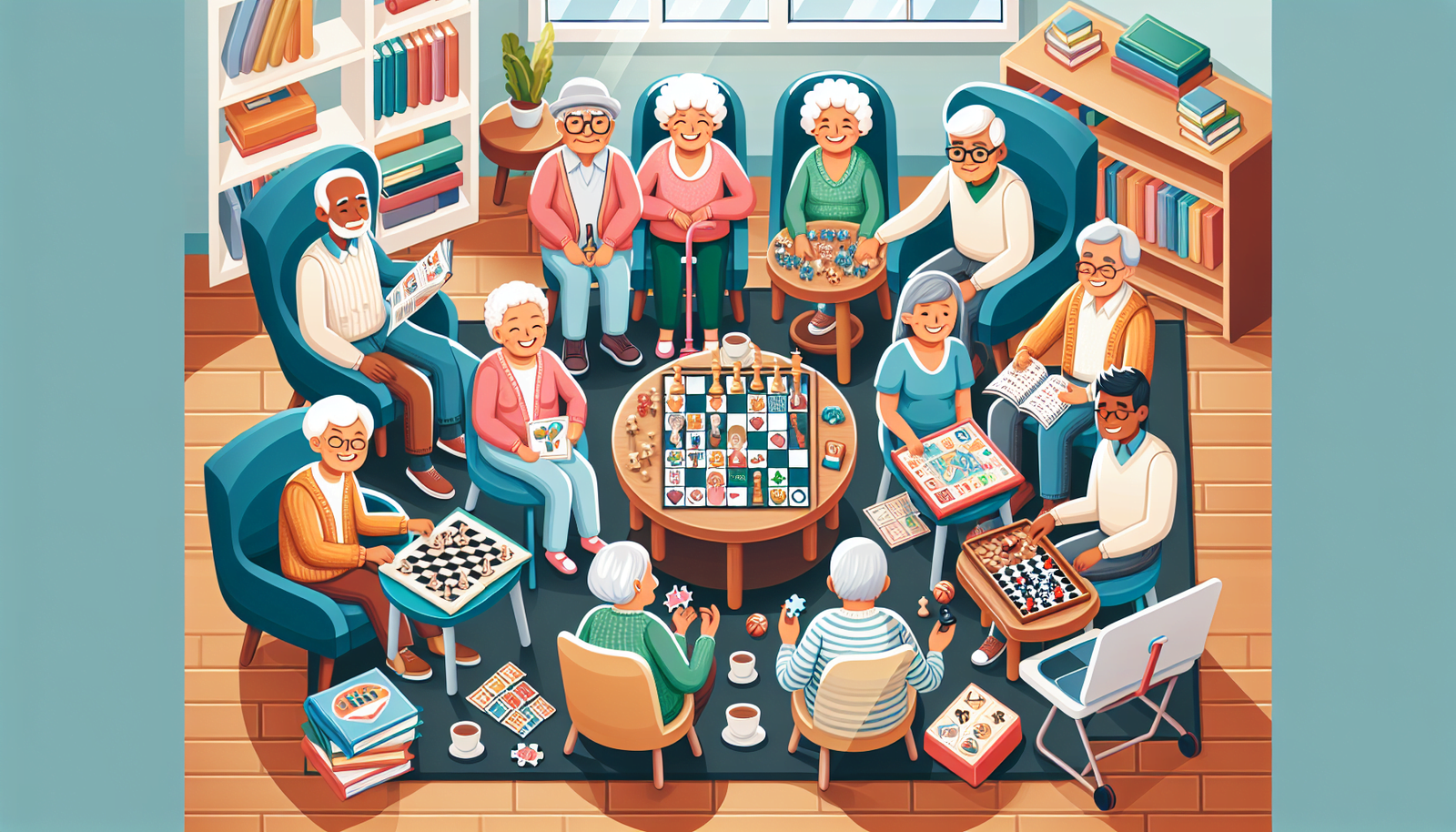Article Index
- Elderly games: the best way to prevent brain diseases
- The power of games for the brain
- Elderly games: a fun way to prevent brain diseases
- The benefits beyond brain disease prevention
- Conclusion
Elderly games: the best way to prevent brain diseases

People are living more and more, and with population ageing, the concern about brain health becomes increasingly relevant. Diseases such as Alzheimer and dementia affect millions of people around the world, and finding ways to prevent or slow their development is essential.
One of the most effective ways to keep the brain healthy is through the practice of games and activities that stimulate the mind. In this article, we will explore how games for the elderly can be the best way to prevent brain diseases.
The power of games for the brain
Scientific studies have consistently shown that regular practice games and cognitive activities may have a significant impact on brain health. Games that involve mental challenges such as puzzles, crosswords and memory games, stimulate different areas of the brain and help strengthen neural connections. In addition, these activities can also improve the concentration, memory and problem-solving ability.
A study conducted by University of Iowa, in the United States, accompanied a group of seniors who practiced cognitive games regularly. The results showed that these elderly people presented a significant reduction in the risk of developing brain diseases, such as Alzheimer, compared to those that did not practice these activities.
Another study by the University of Toronto, Canada, showed that computer games specially developed for seniors can improve cognitive function and slow down the mental decline related to age.
Elderly games: a fun way to prevent brain diseases
One of the main advantages of games for the elderly is that they are fun and engaging. Unlike other forms of brain exercise, such as reading books or solving mathematical problems, games offer a playful and pleasurable experience. This makes it easier for the elderly to incorporate these activities into their daily routines and stay motivated to continue practicing.
There are many games available for elderly, both online and offline. Some popular examples include puzzles, memory games, board games, word games and strategy games. In addition, many apps and websites offer specially developed games for seniors, with simple and intuitive interfaces.
The benefits beyond brain disease prevention
In addition to preventing brain diseases, games for the elderly also bring a number of other benefits. They can help improve motor coordination, mental agility and multitasking ability. In addition, playing group games can promote social interaction and help fight loneliness and isolation, common problems among the elderly.
A study conducted by the University of Chicago in the United States showed that elderly people participating in cognitive game groups presented a significant improvement in quality of life and emotional well-being. In addition, these elderly people also reported a greater sense of belonging and connection with the other participants.
Elderly games are a fun and effective way to prevent brain diseases and keep the brain healthy. Regular practice of cognitive games stimulates different areas of the brain, strengthens neural connections and improves cognitive function. In addition, these activities also bring additional benefits such as improving motor coordination, promoting social interaction and combating loneliness.
Therefore, it is important to encourage the elderly to incorporate games into their daily routines and take advantage of the benefits they can bring to brain health and general well-being.












Leave a Review